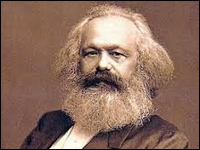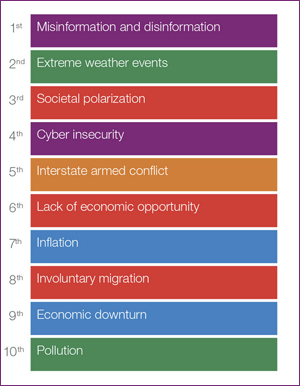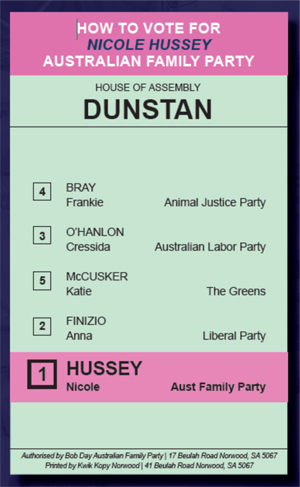 Marx or Schumpeter?
Marx or Schumpeter?
Socialism or free markets?
It’s a debate that has raged for more than a hundred years.
Socialists contend that although socialism may not have worked out all that well in practice (an understatement if ever there was one), it is still the kindest and fairest form of society, and if ever it were truly tried, it would result in a more prosperous and just world.
Or, as former US Vice-Presidential candidate Tim Walz put it recently, ‘One person’s socialism is just another person’s neighbourliness!’
Free markets, they say, are the exact opposite of this. They are rapacious and predatory.
So, who is right, and who is wrong?
Although the arguments I use below have been put forward in one form or another many times, I am indebted to US commentator Ben Shapiro for crystalizing a number of the key points referred to in this debate.
First, free markets are economic systems by which individuals are free to exchange the products and services of their labour with others.
Socialism is about government planning – politicians and public sector bureaucrats deciding the value, and hence the price, of everything.
The fundamental difference between these two systems goes to the heart of our understanding of what it means to be human.
Austrian economist Joseph Schumpeter wrote, ‘Two principles stand above all others: the fundamental human right to do as we please with our own property – whether it be our human capital or our life savings – and, as a corollary of this, a belief in the inherent moral superiority of an economy based on freedom of contract rather than collective coercion.’
Similarly, philosopher John Locke said, ‘Every man has property in his own person, and nobody has any right to it but himself. The labour of his body, the work of his hands, are properly his. Whatsoever he removes out of the state of nature … and has mixed his labour with it, and joined it to something that is his own, thereby makes it his property.’
Hence, the essential element of free markets is individual liberty – no-one possessing a veto over another person’s right to decide what they can and cannot do with their labour.
This freedom of exchange, they argue, leads to a robust system of supply and demand in which sellers and buyers agree on prices.
And because the preferences of human beings are fluid, the price of a product or service can only be determined in a free market, as it is only the buyer who can determine what the price of a product or service should be. Further, that price can change over time as individuals decide what their priorities are at a particular time.
US philosopher Thomas Sowell says, ‘The free market is nothing more than an option for each individual to choose among numerous existing institutions or to fashion new arrangements suited to his or her own situation and taste.’
‘Free markets reward hard work. They reward people who are willing to give up something that is guaranteed in favour of something that is not guaranteed. Accordingly, because entrepreneurs and innovators take risks, they ought to reap the reward.’
Aristotle suggested that individuals are equal in their rights, but not in their qualities.
Each ought to have the same rights to take advantage of their own natural abilities.
Christians believe that every person will one day stand before their Creator and give an account of themselves. They will not be able to blame anyone else for their lives but will be required to take responsibility for their own actions.
If that is the case, then that person should have the fundamental right to decide, as Schumpeter and Locke have articulated, what value they place on their labour at any given time in order to fulfil what they believe are their obligations to their families.
This is, of course, fundamentally at odds with current laws in Australia.
In Australia a person can:
-
- get married
-
- have children
-
- drive a motor vehicle
-
- fly an aeroplane
-
- buy a house
-
- take out a mortgage
-
- enter into a mobile phone contract
-
- travel to some of the most dangerous places on earth
-
- smoke cigarettes
-
- drink alcohol
-
- enlist in the armed forces and shoot enemy combatants
-
- and, of course, vote
but they can NOT enter into an employment arrangement which they believe is best for them. They are subject to a multitude of wage-fixing laws.
When asked why this happens, we are told, ‘It’s for their own good – we don’t want them to be exploited’.
The old ‘We want you to be safe’ mantra.
This has been demonstrated many times – for example, the dramatic increase in youth unemployment when unrealistic wage laws were introduced and when Aboriginal stockmen were awarded ‘equal pay’ in the 1960s.
In the latter case, pastoralists argued that the application of award rates to aborigines on cattle stations would cause massive unemployment.
The Northern Australian Workers’ Union mounted the case, but it was the Commonwealth Government’s intervention which was the most telling:
‘If numbers of aborigines are thrown out of work by the award of equal pay, they will be given aid on government settlements,’ they argued.
‘And if any problems of native welfare – whether of employees or their dependants – arise as a result of this decision, the Commonwealth Government has made clear its intention to deal with them.’
Thus began the tragedy of aboriginal townships and settlements.
In his article, ‘How to create unemployment: The Arbitration Commission and the Aborigines’, journalist and author Gerard Henderson said the Stockman’s decision was ‘staggeringly irresponsible’.
‘Almost from the date of the Commission’s decision there was a dramatic decline in Aboriginal employment on cattle stations in the Northern Territory and Western Australia – with devastating social consequences for the former employees and their dependants.’
Right there is the key aspect of socialism – ‘We will decide what’s best for you’.
‘We will also decide what you need and don’t need.’
‘And first and foremost, you don’t need to own private property’, decreed Karl Marx, the founder of socialism.
In short, socialism is a system that places the individual under the control of the authoritarian state.
Is it any wonder it encourages revolutionaries?
Once established, socialism encourages laziness and stupidity and encourages people to lie.
Socialist politicians lie about what their policies are achieving – Australia’s current energy policies being a prime example – and their public sector subordinates lie to their political masters because they don’t want to get on the wrong side of them.
And people who are forced to live under socialist rule lie in order to survive, hence the proliferation of black markets in socialist economies.
The result is untold misery.
Thank you for your support.
 It’s been said, ‘Our lives are not examined for medals, diplomas or degrees, but for battle scars’.
It’s been said, ‘Our lives are not examined for medals, diplomas or degrees, but for battle scars’. The Black by-election is over and, as widely reported, the seat switched quite spectacularly from the Liberal Party to Labor in a massive 13 per cent swing.
The Black by-election is over and, as widely reported, the seat switched quite spectacularly from the Liberal Party to Labor in a massive 13 per cent swing. It’s been said that there are only two industries in the world – farming and mining. The rest are jobs.
It’s been said that there are only two industries in the world – farming and mining. The rest are jobs. The Australian Family Party’s candidate in Black is Jonathan Parkin (pictured). A former commercial airline pilot, Jonathan has lived in the electorate for most of his life. Married with two children, he has been involved in a number of community activities, including the Nipper program at the local Seacliff Surf Life Saving Club. More about Jonathan in coming weeks.
The Australian Family Party’s candidate in Black is Jonathan Parkin (pictured). A former commercial airline pilot, Jonathan has lived in the electorate for most of his life. Married with two children, he has been involved in a number of community activities, including the Nipper program at the local Seacliff Surf Life Saving Club. More about Jonathan in coming weeks. In the book of Revelation, the last book of the Bible, there is a vivid description of The New Jerusalem – The Holy City – referred to in John Bunyan’s Pilgrim’s Progress as ‘The Celestial City’, the ultimate heavenly home of believers.
In the book of Revelation, the last book of the Bible, there is a vivid description of The New Jerusalem – The Holy City – referred to in John Bunyan’s Pilgrim’s Progress as ‘The Celestial City’, the ultimate heavenly home of believers. It is exactly 50 years since Western Mining first discovered the massive gold, silver, copper and uranium ore body at the aptly-named Olympic Dam in South Australia. A golden anniversary indeed!
It is exactly 50 years since Western Mining first discovered the massive gold, silver, copper and uranium ore body at the aptly-named Olympic Dam in South Australia. A golden anniversary indeed! So said former New Zealand Prime Minister, Jacinda Ardern.
So said former New Zealand Prime Minister, Jacinda Ardern. Internationally, ‘misinformation and disinformation’ have risen to number one on the list of top 10 risks cited by the World Economic Forum’s (WEF) Global Risks Report 2024.
Internationally, ‘misinformation and disinformation’ have risen to number one on the list of top 10 risks cited by the World Economic Forum’s (WEF) Global Risks Report 2024. The story is told of the founder of Dubai, Sheikh Rashid, who, when asked about the future of his country replied:
The story is told of the founder of Dubai, Sheikh Rashid, who, when asked about the future of his country replied: In ‘The Adventure of Silver Blaze’, one of the Sherlock Holmes short stories, Holmes is sent to investigate the disappearance – on the eve of an important race – of a champion racehorse called Silver Blaze, and the death of its trainer John Straker.
In ‘The Adventure of Silver Blaze’, one of the Sherlock Holmes short stories, Holmes is sent to investigate the disappearance – on the eve of an important race – of a champion racehorse called Silver Blaze, and the death of its trainer John Straker. Well, both men are now gone, the Liberal Party having lost both State and Federal elections in 2022.
Well, both men are now gone, the Liberal Party having lost both State and Federal elections in 2022.